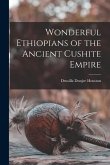Explore the vibrant social customs and rich tapestry of West African culture in Alfred Burdon Ellis's "The Land of Fetish." This captivating work offers a fascinating journey through the region, providing invaluable insights into its history and traditions. Ellis, a keen observer, meticulously documents his travels, presenting a detailed account of the people, their beliefs, and the impact of colonial influences. This book serves as a window into a bygone era, providing a valuable historical record of West Africa. Readers interested in African culture, travel narratives, and the intricacies of colonial history will find "The Land of Fetish" to be both enlightening and engaging. Discover the ethnographic details that make this work a timeless contribution to our understanding of West Africa. This work has been selected by scholars as being culturally important, and is part of the knowledge base of civilization as we know it. This work is in the public domain in the United States of America, and possibly other nations. Within the United States, you may freely copy and distribute this work, as no entity (individual or corporate) has a copyright on the body of the work. Scholars believe, and we concur, that this work is important enough to be preserved, reproduced, and made generally available to the public. We appreciate your support of the preservation process, and thank you for being an important part of keeping this knowledge alive and relevant.
Bitte wählen Sie Ihr Anliegen aus.
Rechnungen
Retourenschein anfordern
Bestellstatus
Storno









